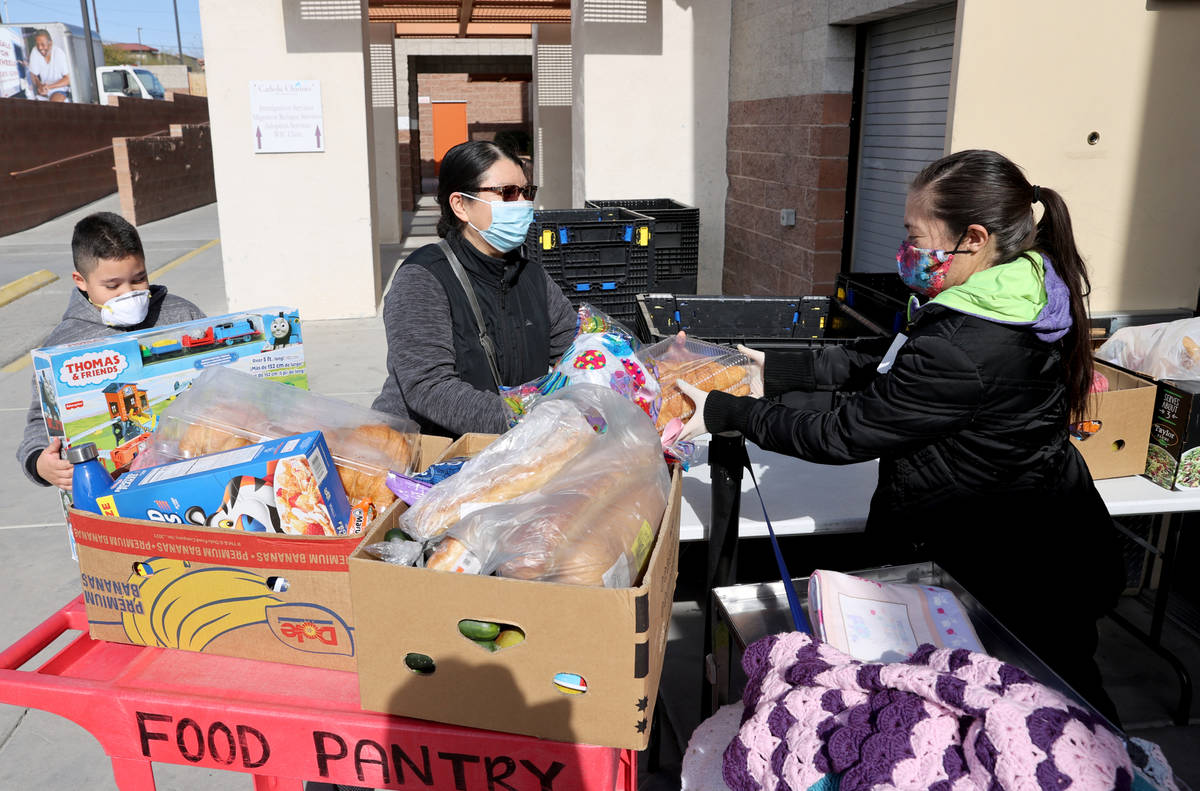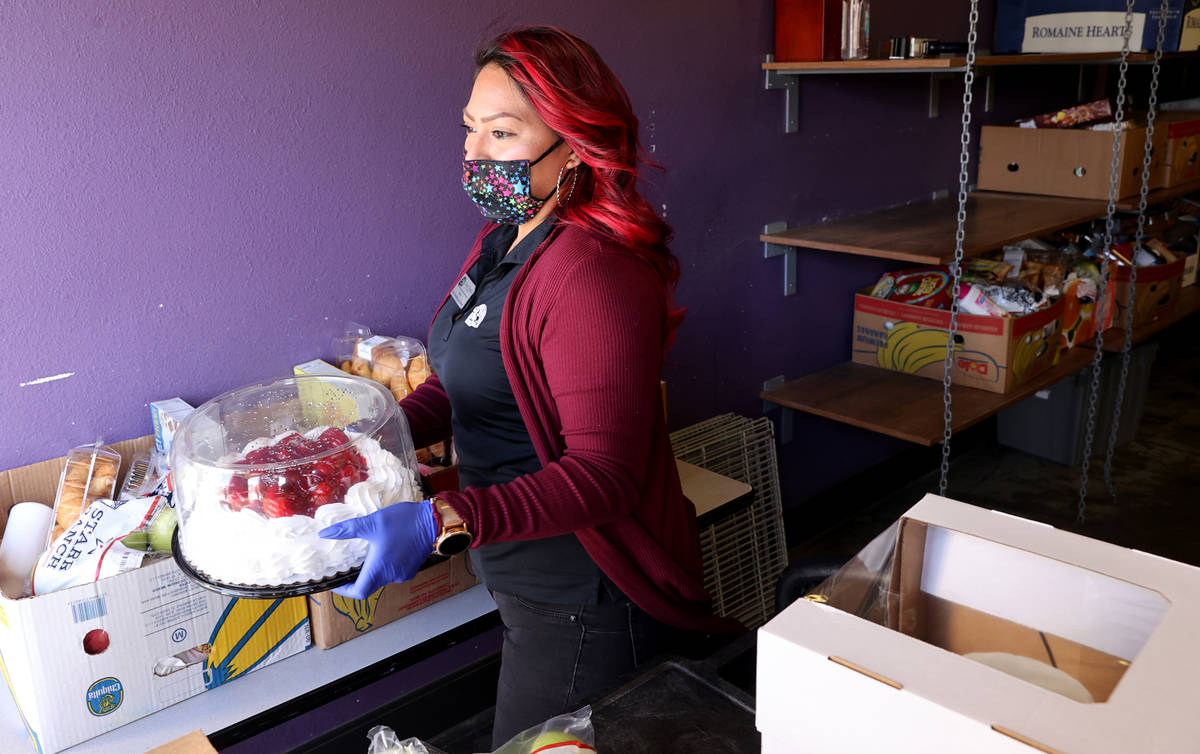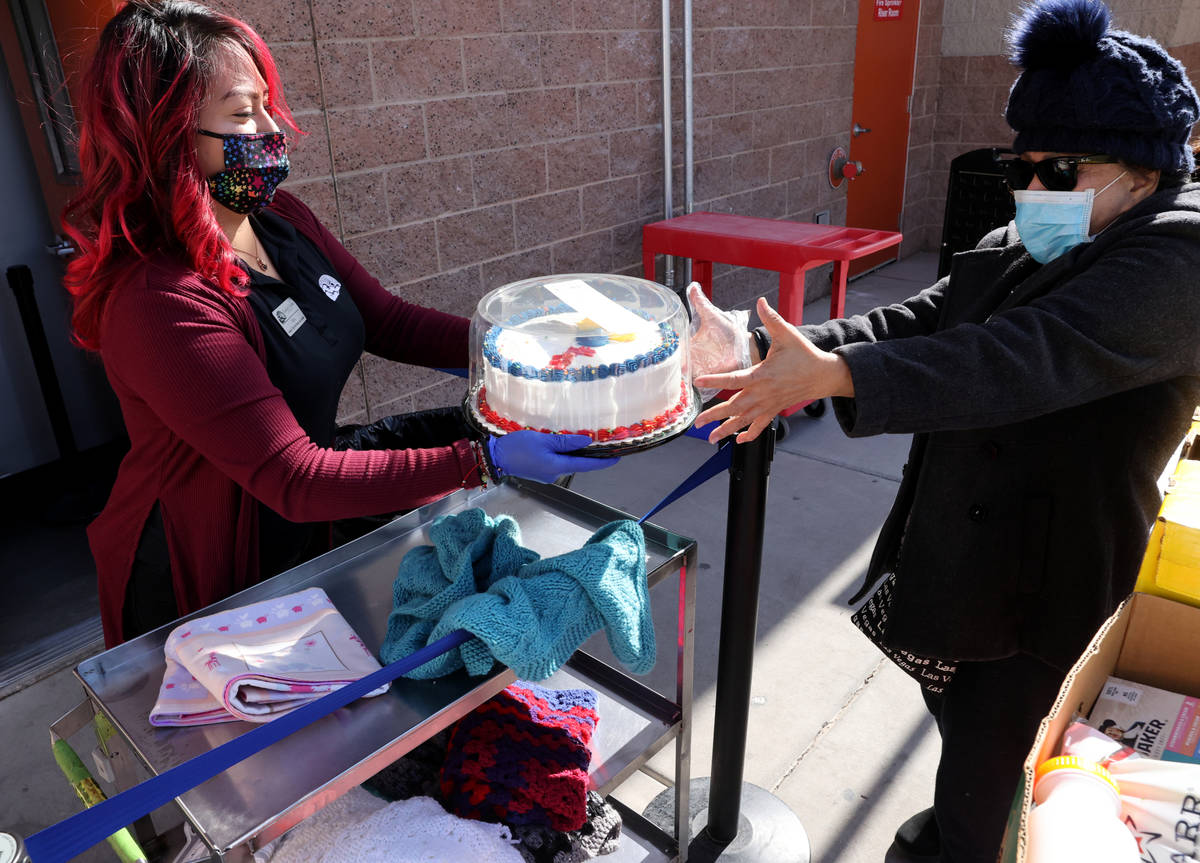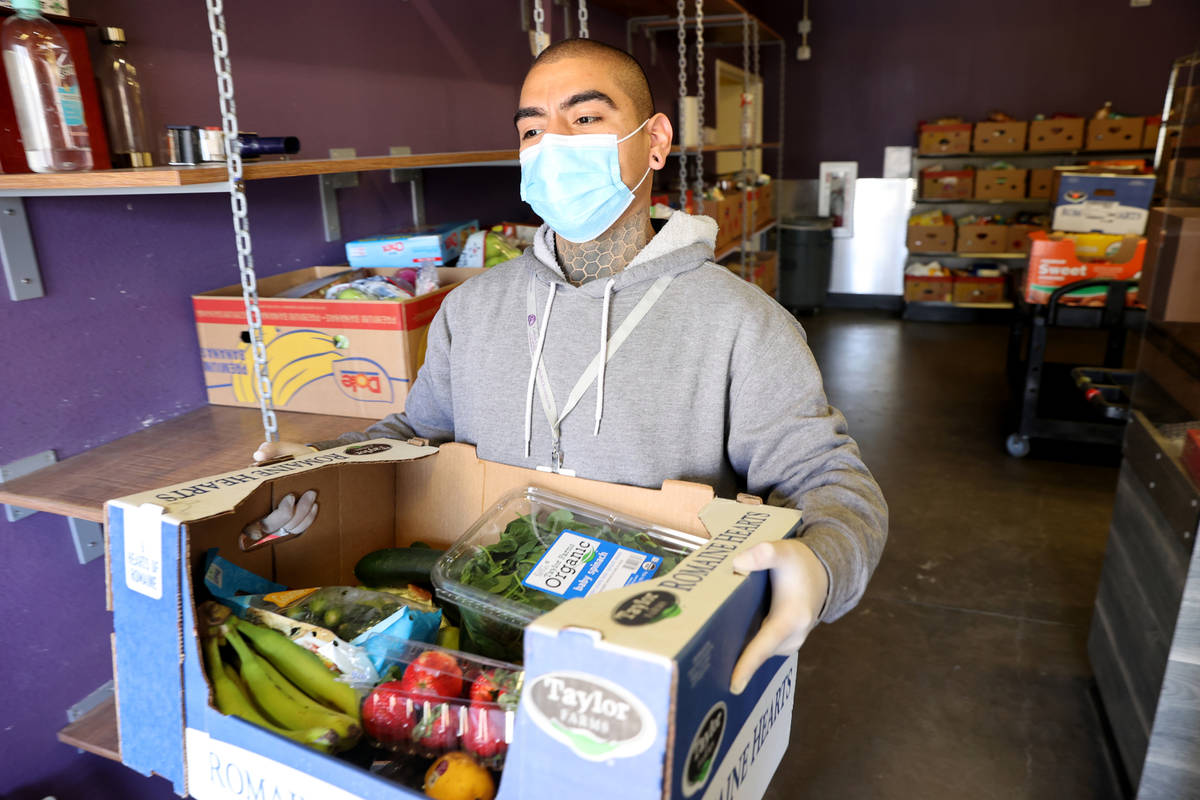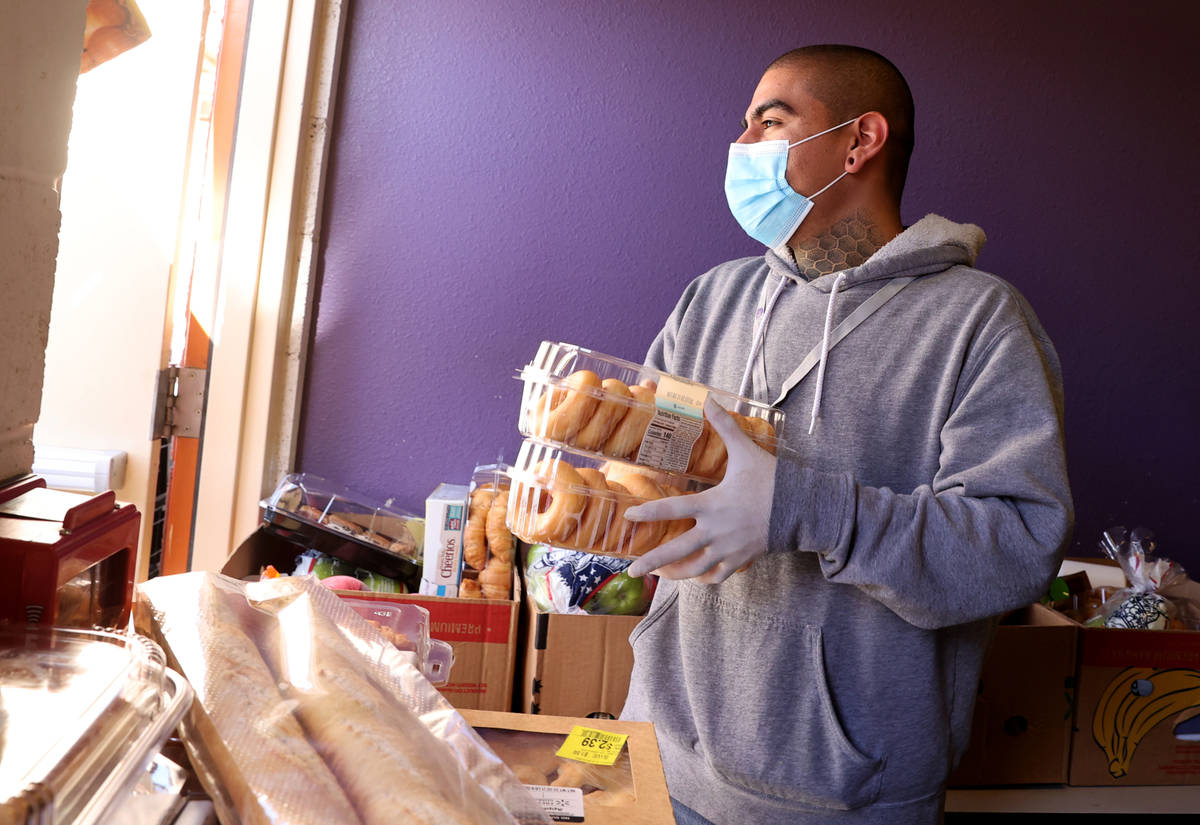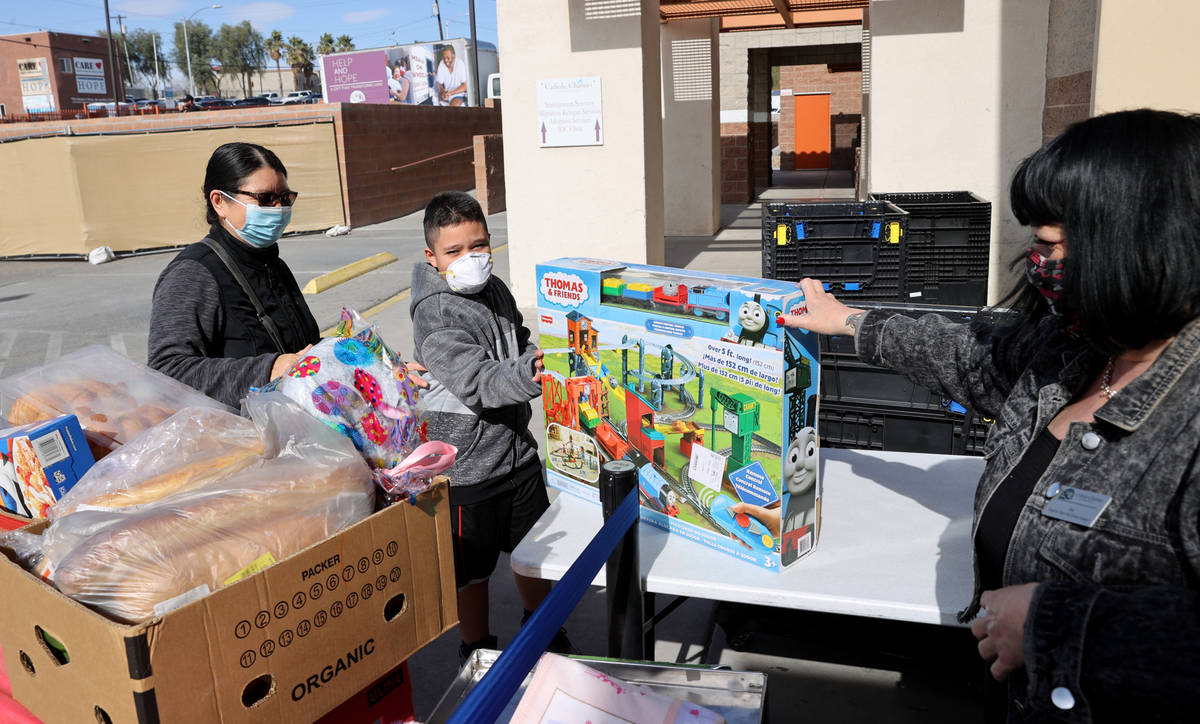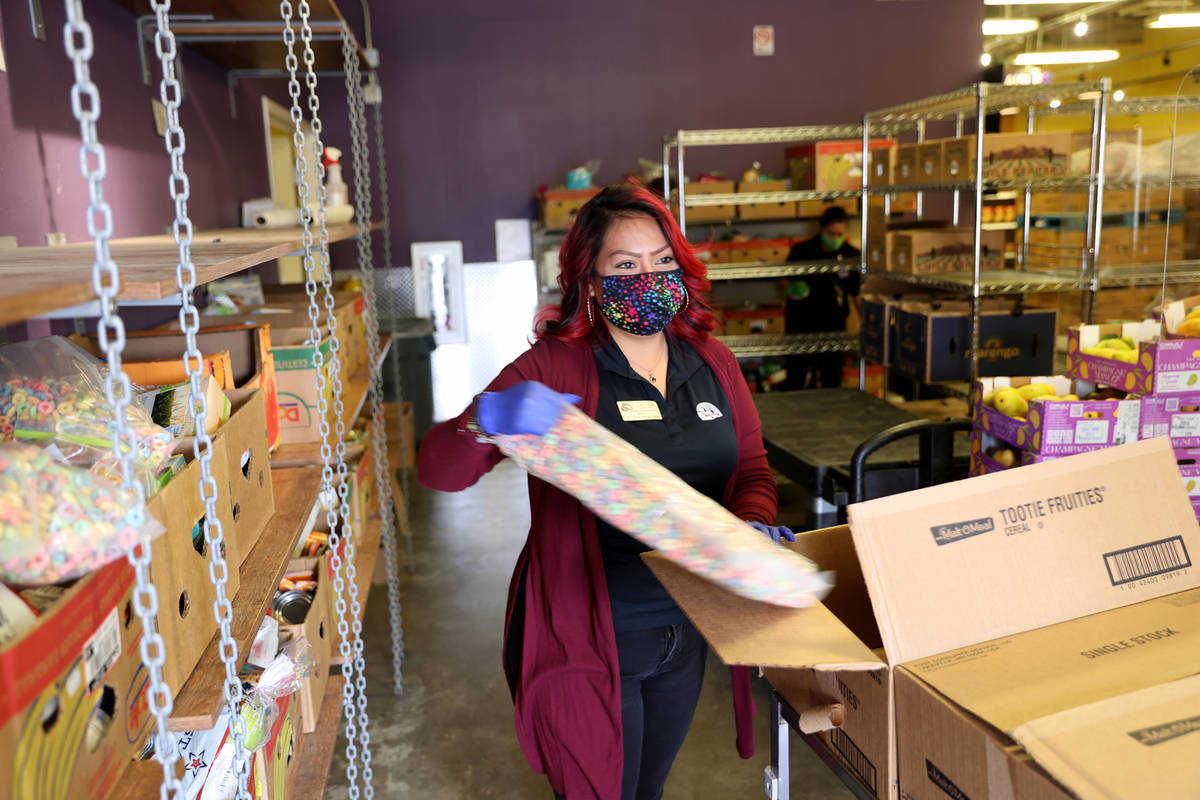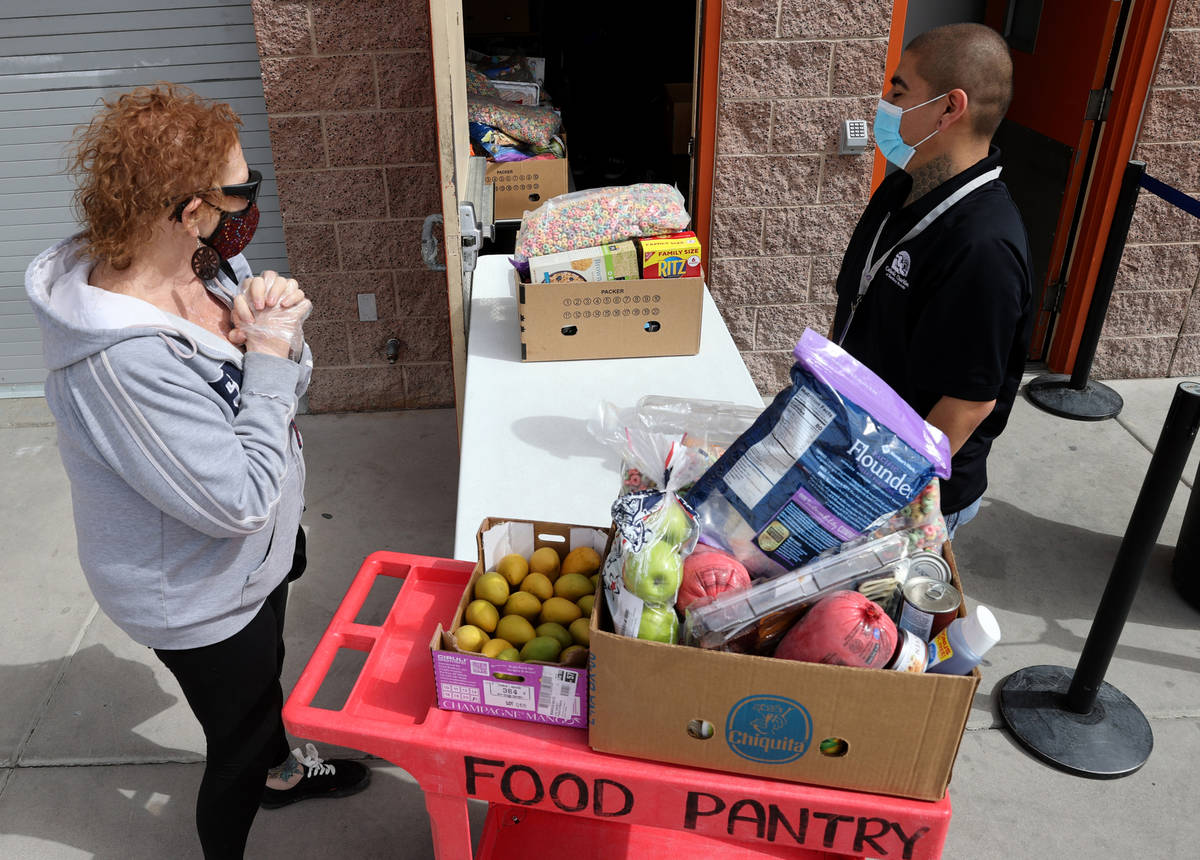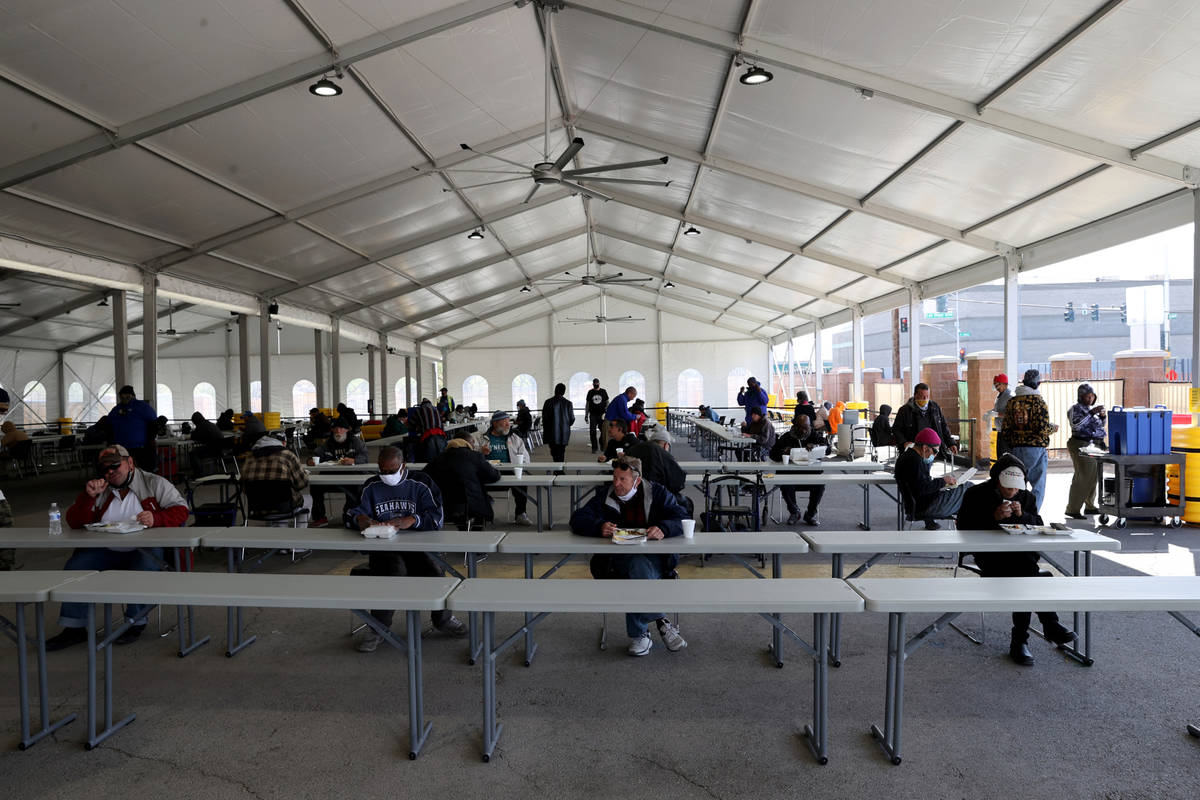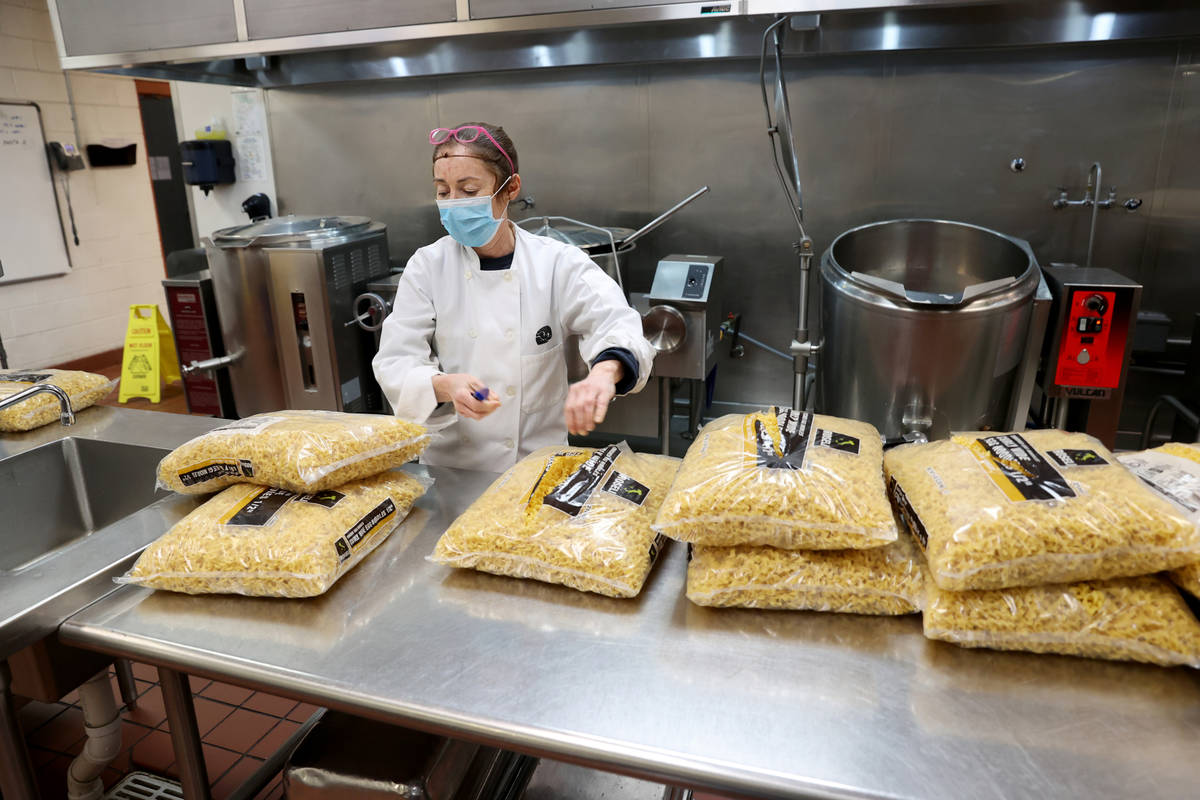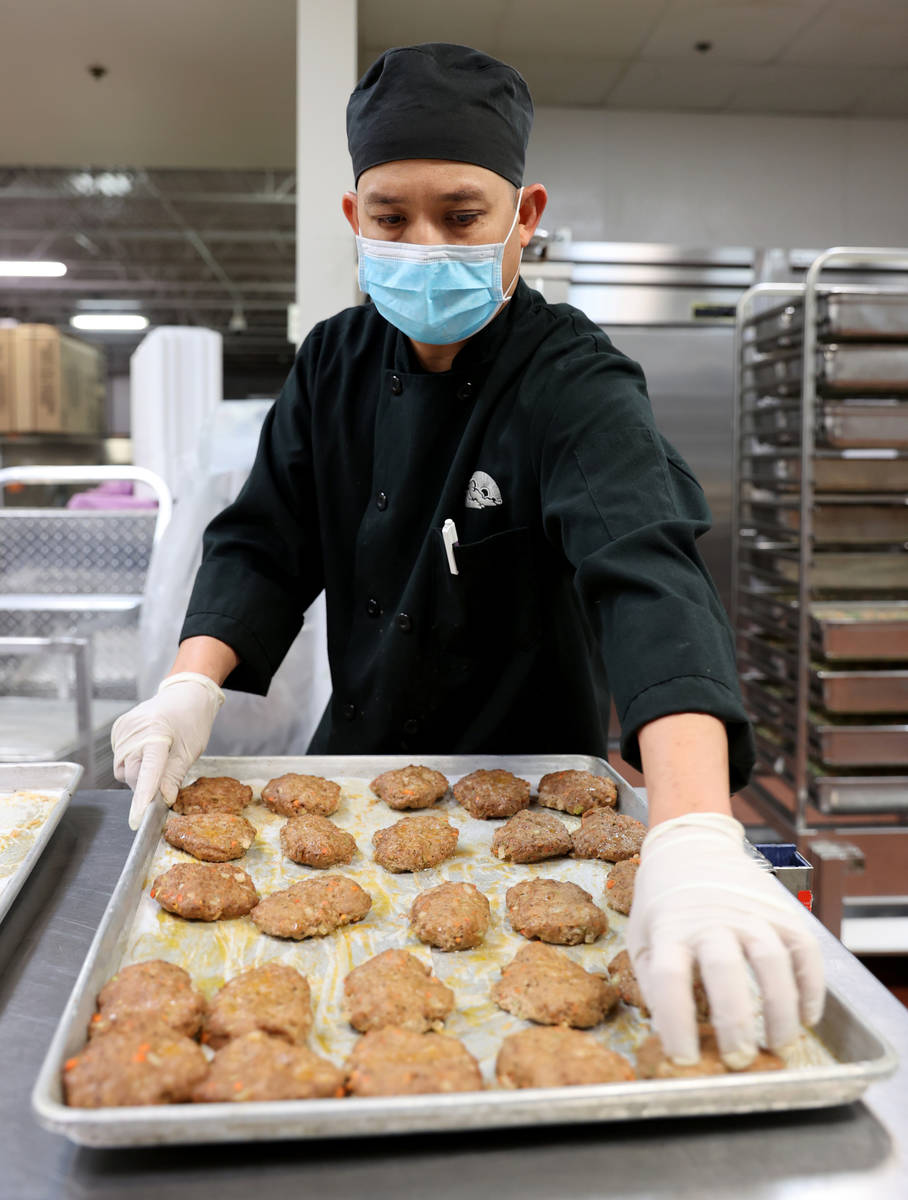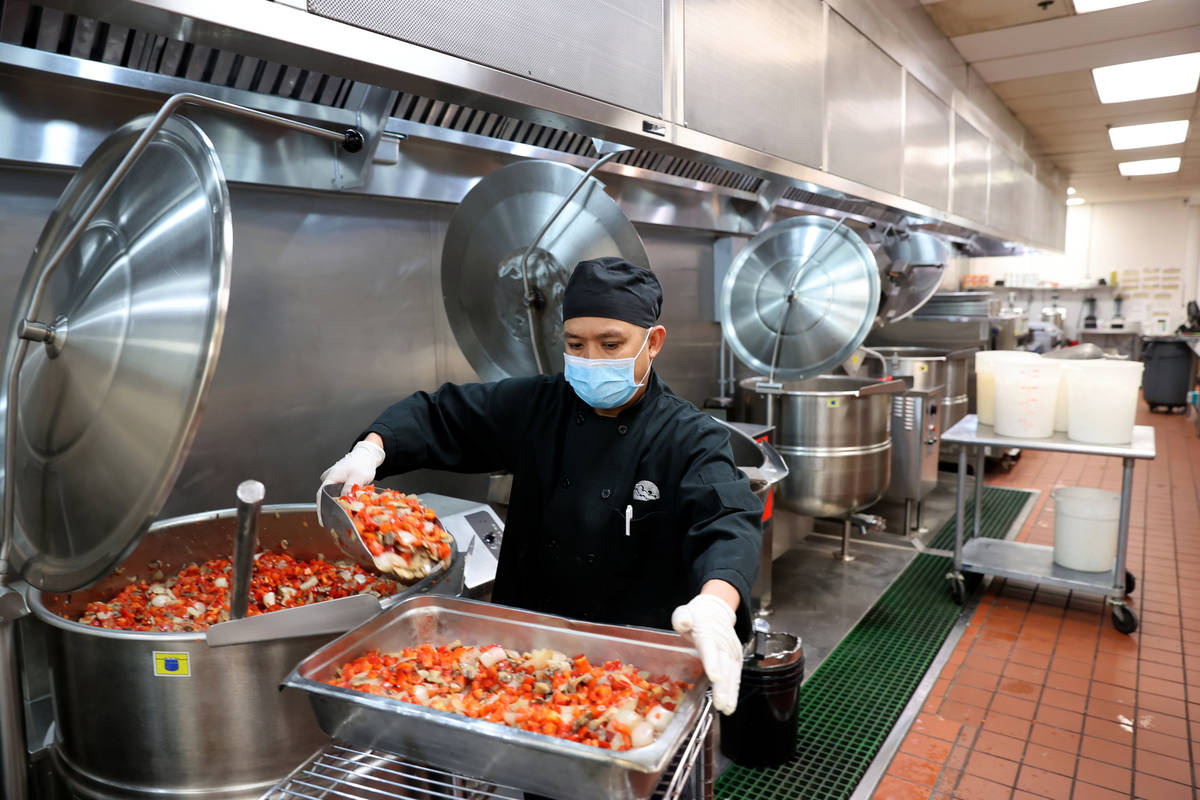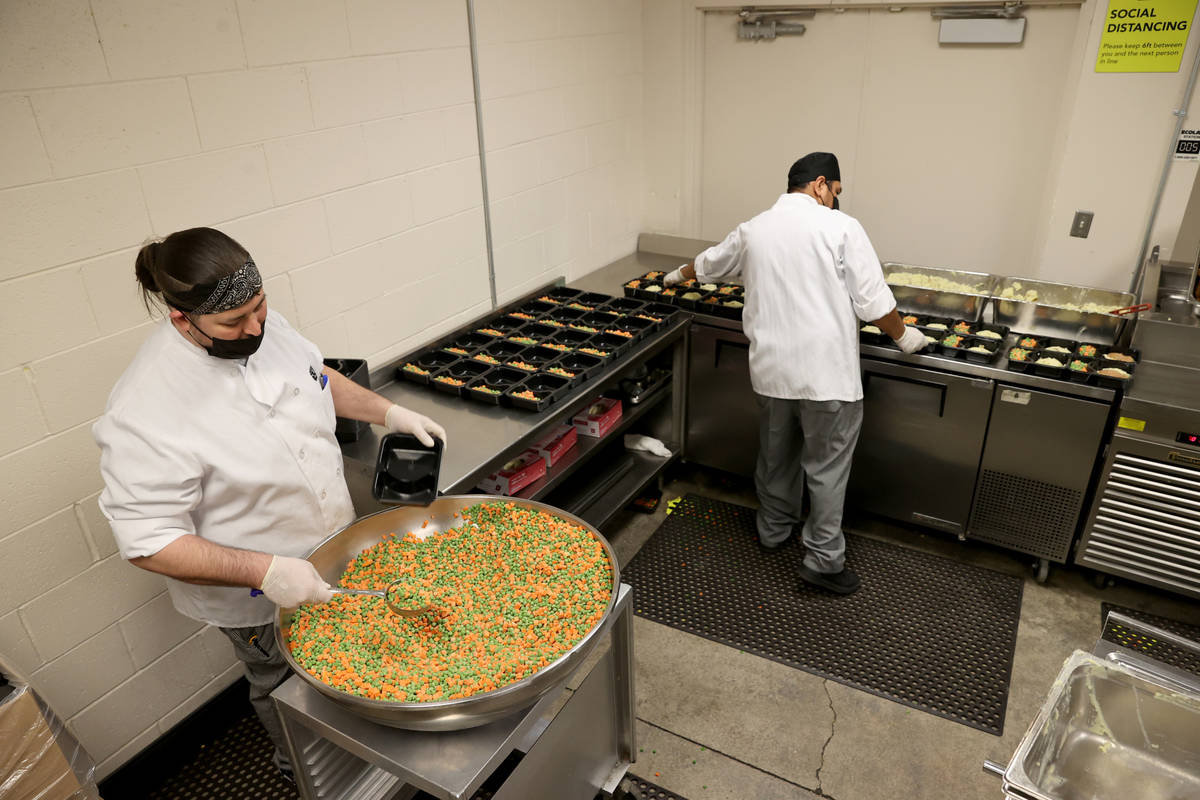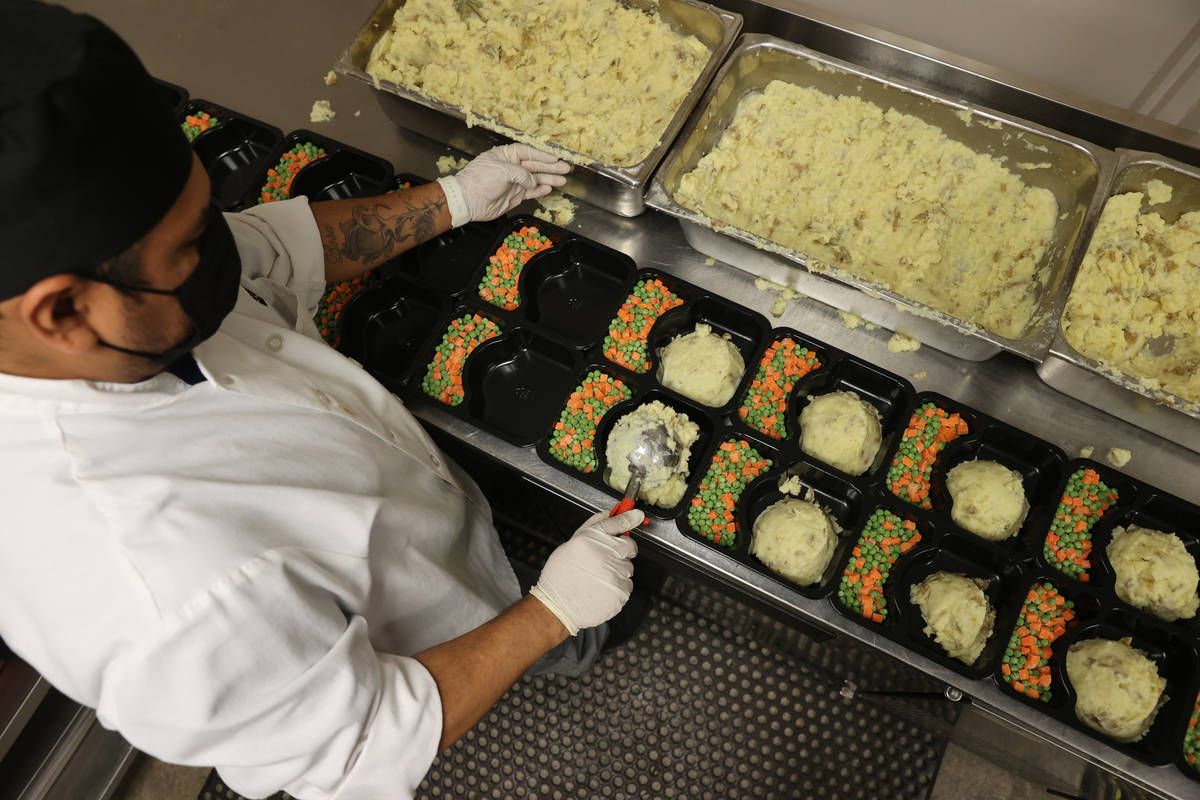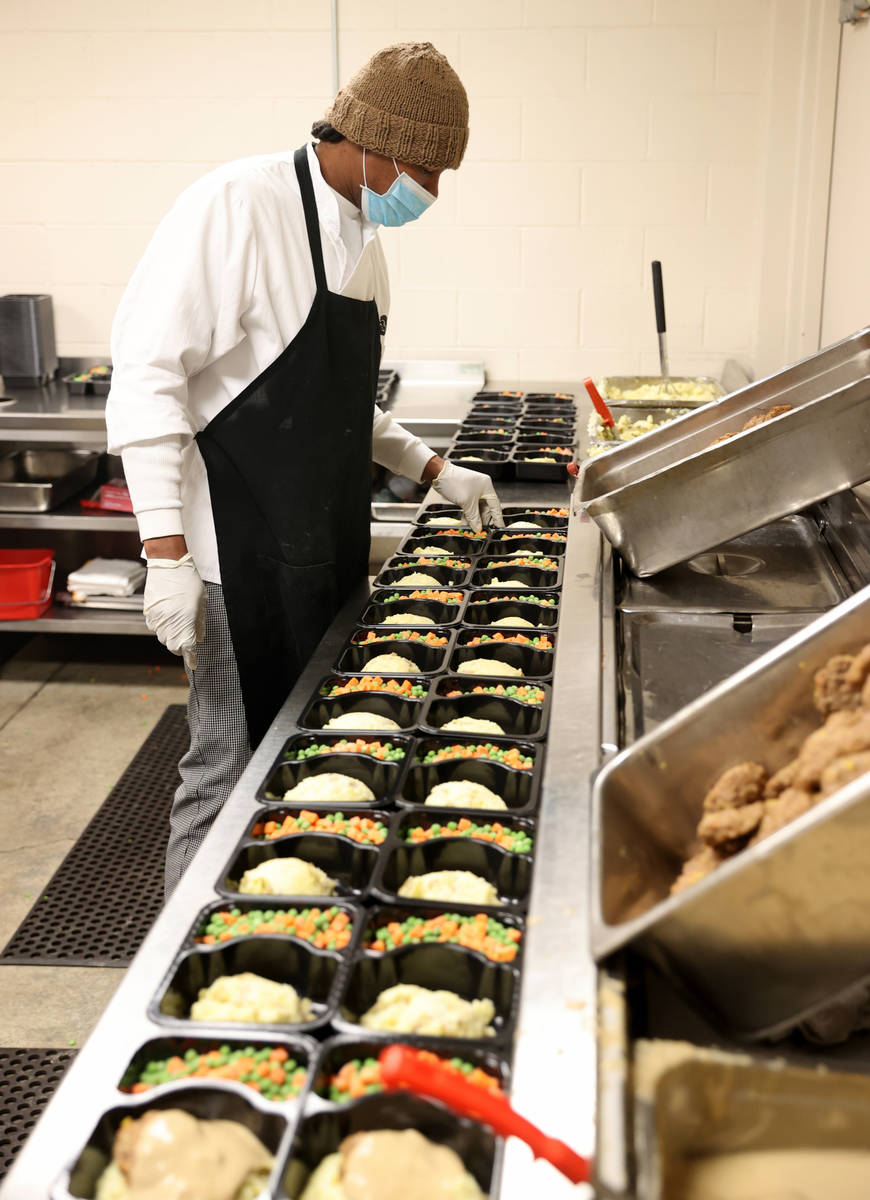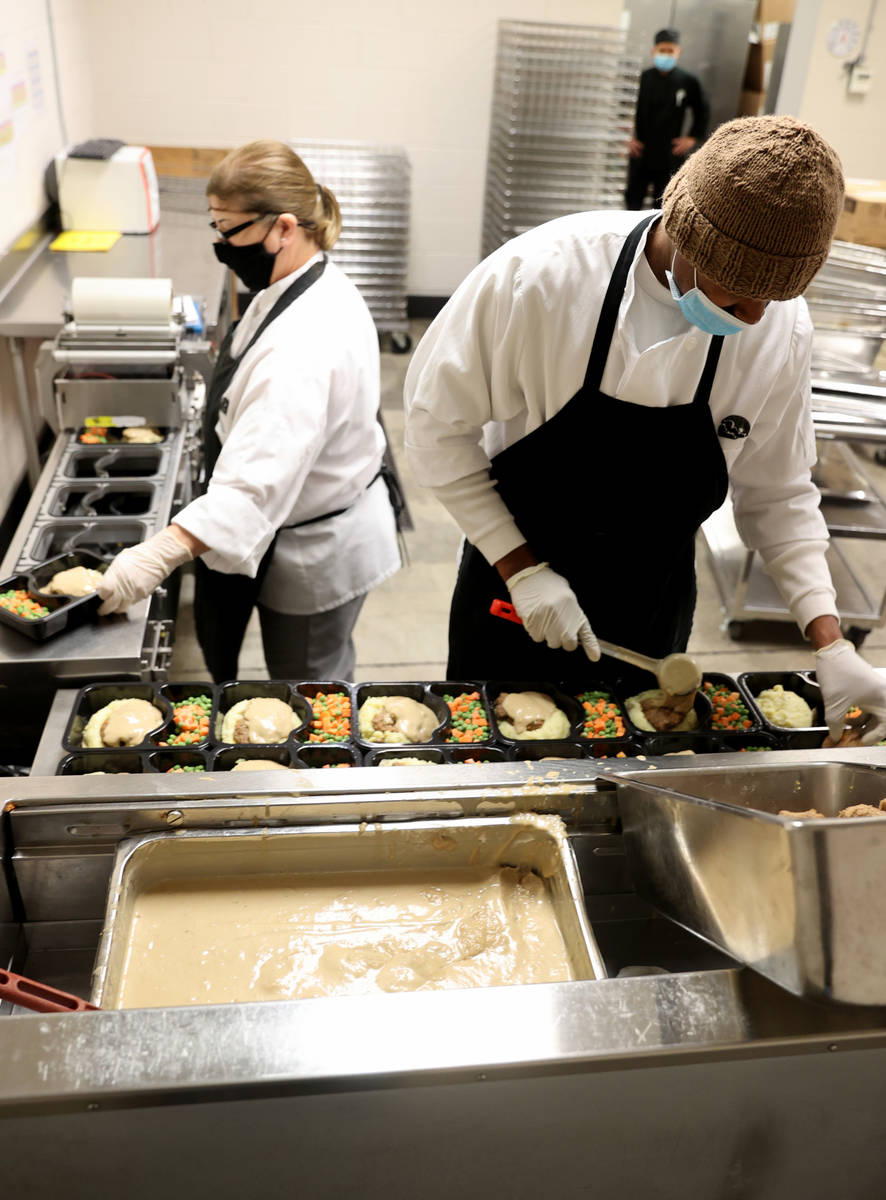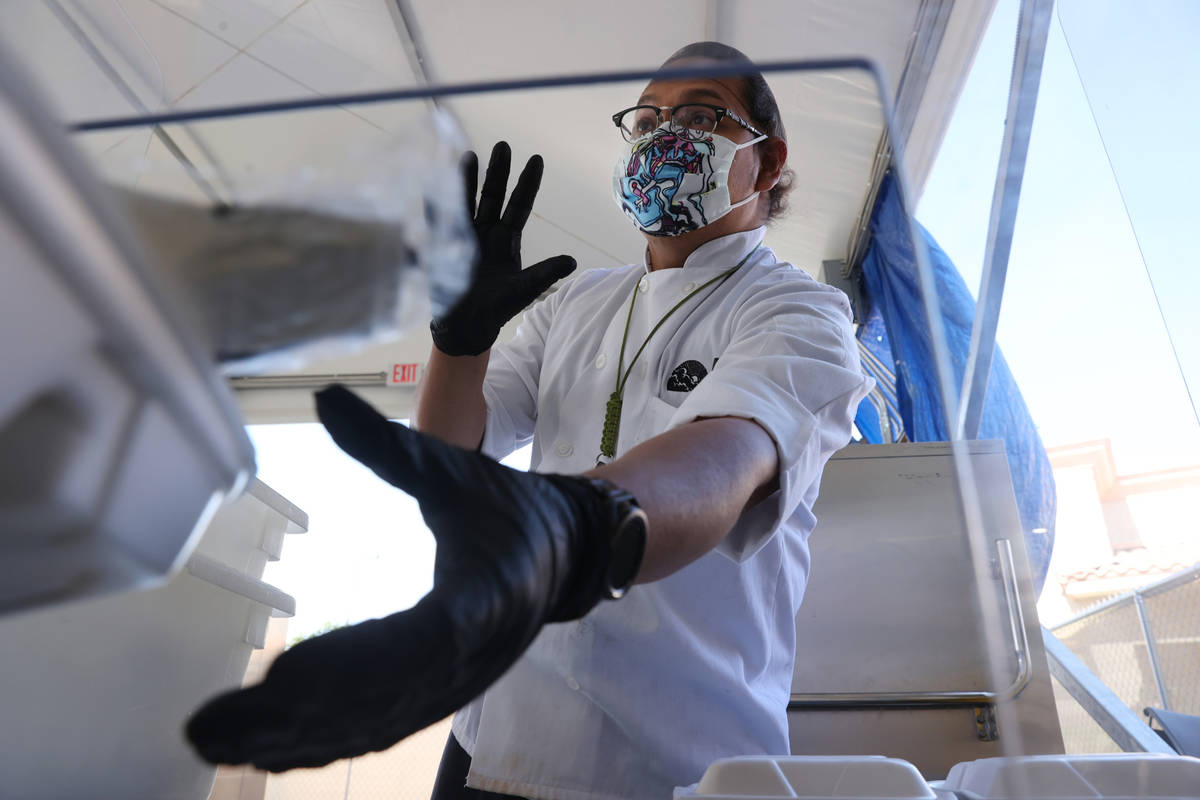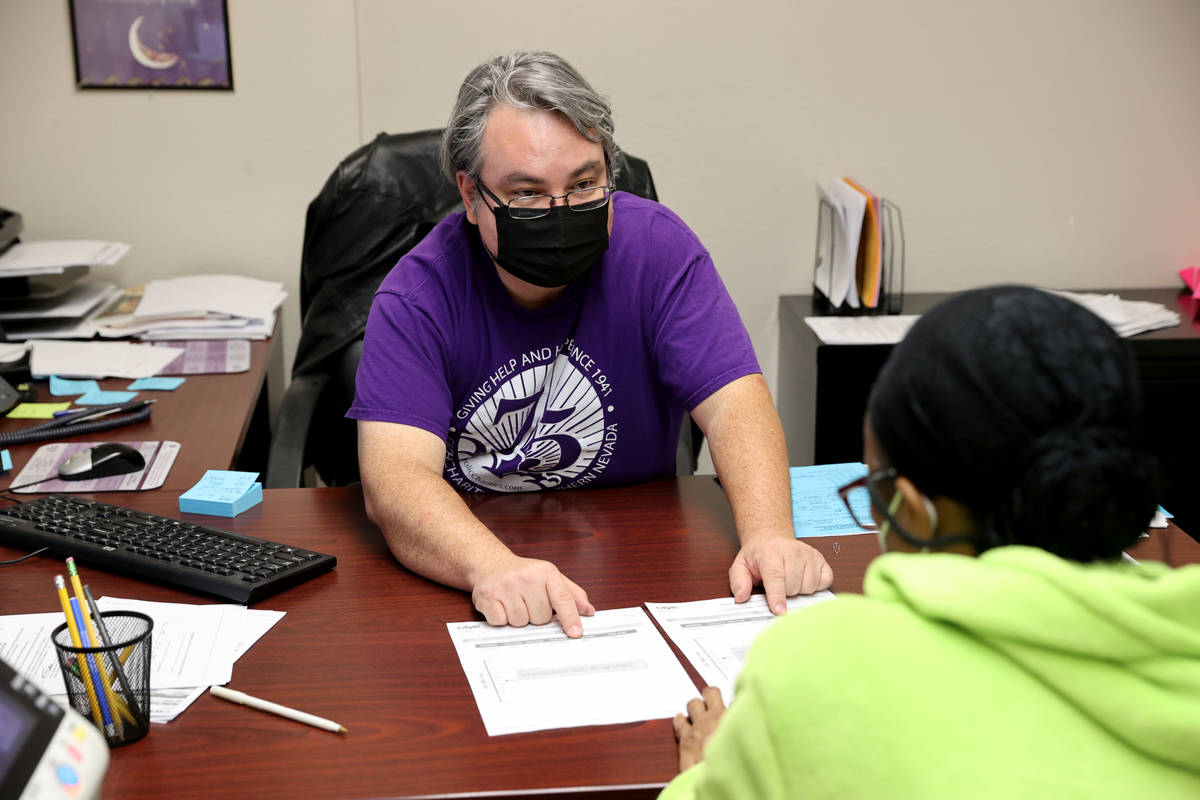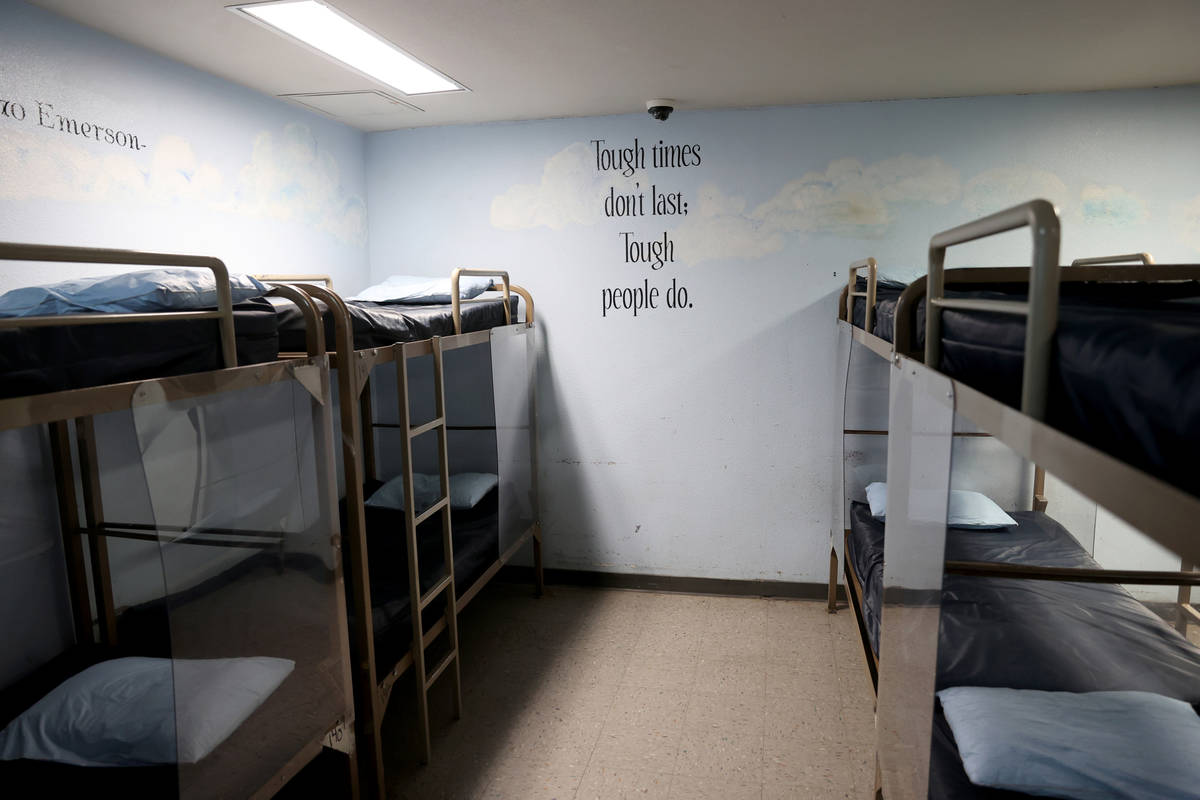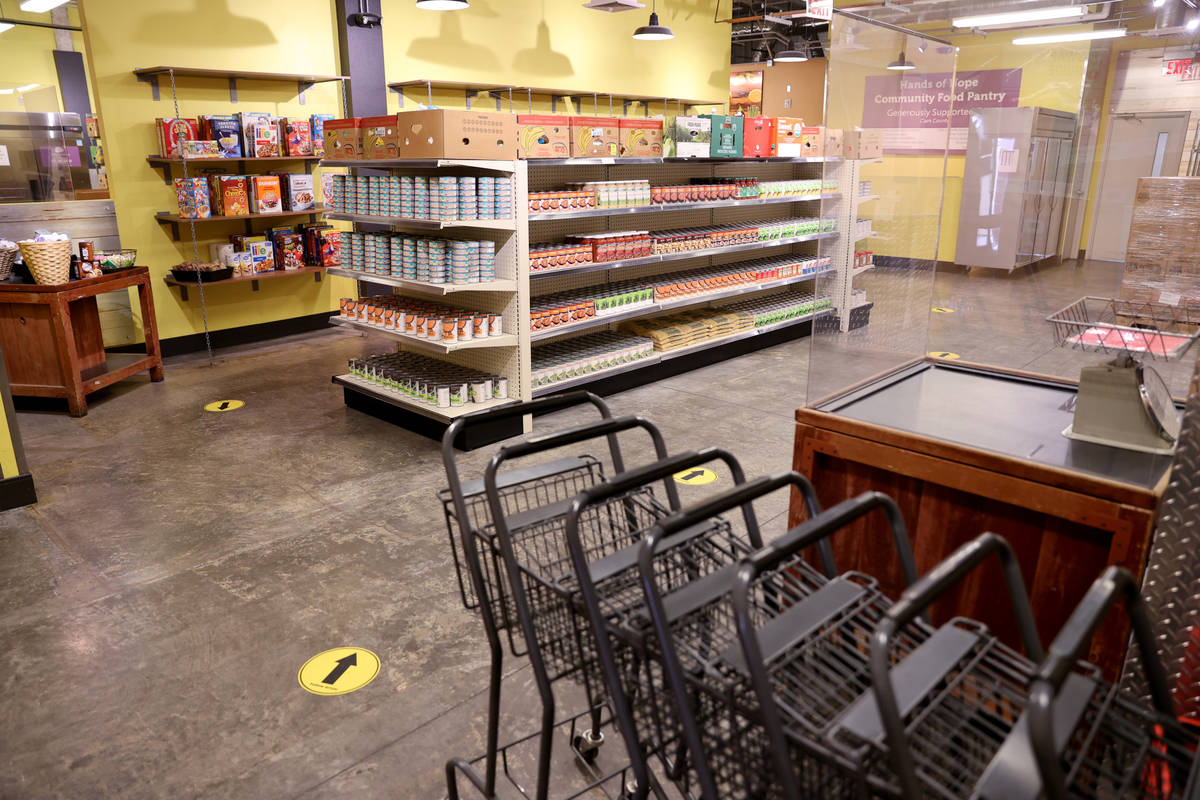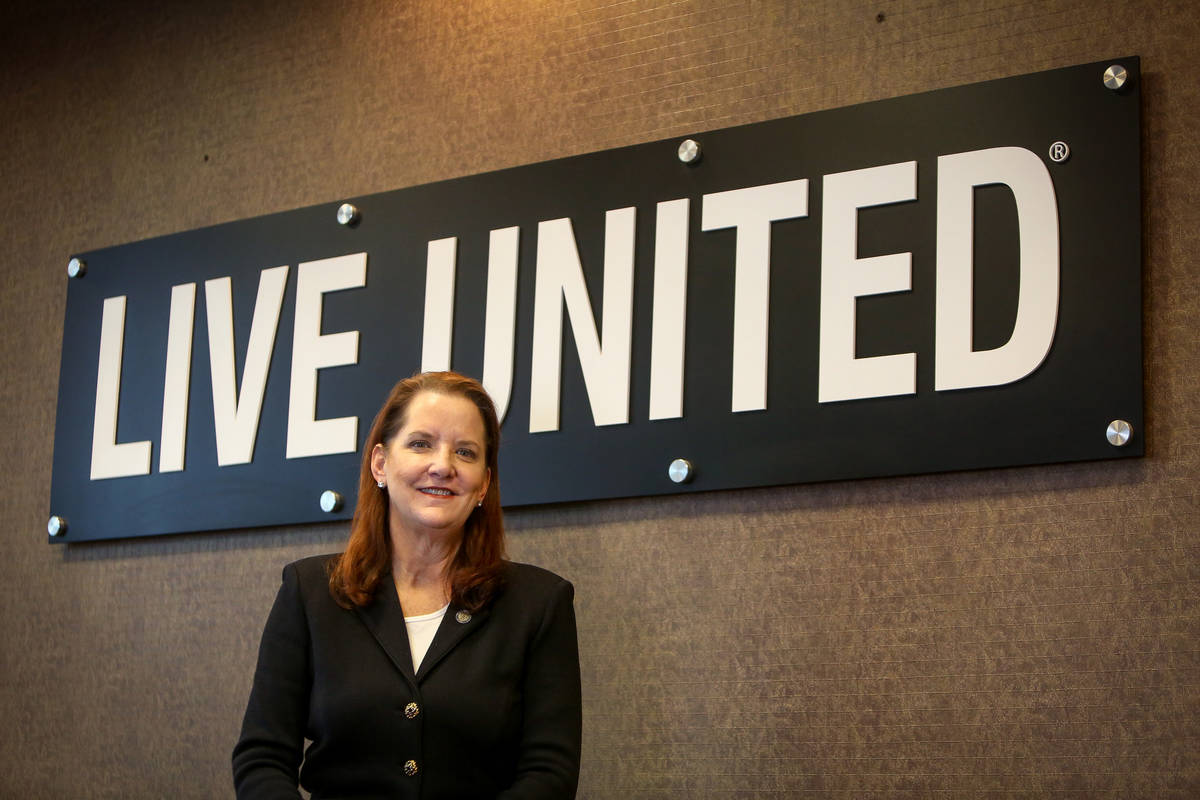Valley nonprofits helping the needy saw nonstop demand. It may last for years.
Southern Nevada nonprofits have been on the front lines over the last 12 months, providing much-needed resources and services, while highlighting the importance of their role in the community.
The twin crises of a global pandemic and a recession have added tremendous strain to many valley nonprofits.
Initially, many nonprofit leaders saw the valley’s immediate need was to mitigate food insecurity as people lost their jobs. It also became clear that organizations would need to respond to a surge in need for help with rental and housing aid, baby diapers and other services.
The demand, however, was unlike anything they’ve seen in the past.
“I’ve been in Southern Nevada for 30 years, this is my home,” said Deacon Tom Roberts, who is also president and CEO of Catholic Charities of Southern Nevada. “In my decades of living here, quite candidly, we were all quite scared when this whole thing hit; nobody knew what was going to happen.”
The COVID-19 pandemic changed everything: from the way organizations operated to how they scrambled to secure donations and funding to confront the growing list of needs in Southern Nevada. The economic downturn was swift and sudden as tens of thousands of Las Vegans saw their incomes vanish almost overnight, placing pressure on nonprofits to fill the important services not provided by the government and businesses.
Kyle Rahn, president and CEO of United Way of Southern Nevada, said nonprofits have been nimble in fulfilling their missions and goals over the past year. Nonprofits across the valley, she said, were collaborative in finding ways to partner.
“One of the biggest takeaways I’ve seen since March, 15, 2020, is the need for increased collaboration and working together,” she said.
Increased demand
Jessica Word, an associate professor at UNLV’s School of Public Policy and Leadership and a researcher who studies nonprofits, said that groups providing for immediate needs, such as food banks and pantries, have seen an increase of demand over the past year.
In conversations with some local nonprofits, Word said organizations such as Three Square food bank have been successful in garnering support from new donors because the need is evident.
“Obviously there’s a huge variety of organizations in the nonprofit sector, and the bigger, and more visible an organization is, it tends to be more successful than smaller ones,” she said. “And you can’t sort of ignore the fact that a lot of them are still unable to fundraise in the way that they used to raise money during galas and in-person events.”
Word said organizations such as Independent Sector lobbied Congress to ensure funding was earmarked for local nonprofits. That wasn’t always the case in previous downturns.
“These organizations made sure nonprofits were part of the conversation and included because during the Great Recession, they were not part of the small-business loans and programs like that,” she said. “I hope what that means is that nonprofits will recover faster because they were now included in the direct stimulus through the Small Business Administration.”
Many valley nonprofits and businesses were eligible to apply for the federal government’s signature relief aid, the Paycheck Protection Program. Word, sifting through the SBA’s most recent PPP data, said that about 19,000 Nevada nonprofit jobs were saved because of the forgivable loans. The number is based on what nonprofits self-report as part of the application process.
Any budget cuts, from the state or local level, will also likely impact some nonprofits that rely on that funding. Currently, federal guidelines for how state and local government can use the most recent stimulus package money are still being finalized.
“It’s easy to think about state budget cuts as mostly impacting state employees but these are a big deal for a lot of social service agencies delivering these frontline services,” said Word.
Collaboration key for nonprofits
Rahn, of the United Way of Southern Nevada, said she realized in late February that the coronavirus was going to hit Las Vegas hard.
“I immediately went to our board of directors and made recommendations, one of which was to start an emergency assistance community needs fund,” she said. Corporate and philanthropic donations poured in from NV Energy Foundation, the Wells Fargo Foundation and Bank of America, which helped create a $2.4 million fund that would assist 127,000 Nevadans through 34 nonprofits that received grants.
The United Way of Southern Nevada, days after Gov. Steve Sisolak announced a statewide shutdown in mid-March, held weekly Zoom meetings with over 200 nonprofits, Rahn said.
“It was central for local city and county government officials to come help us and tell us what we needed to know because we, the nonprofit community, most often are the first-line responders,” she said. “The call we hold has actually become a place where we cheer each other on and we share some of our toughest challenges. There’s comfort in the number of people who are like, ‘We got this.’” Nonprofits have risen up and assisted our state.”
Rahn said that her organization has been mobilizing volunteers through United Way’s Volunteer Connect matchmaking platform, which has more than 2,100 volunteers and 111 local nonprofits.
Some donors became first-time clients
Other organizations that provide aid to much of the valley’s social safety net also have seen services doubled. HELP of Southern Nevada was flooded with email inquiries for rental and housing aid at the start of the pandemic.
When federal stimulus funds flowed into Clark County’s CARES Housing Assistance Program — aimed at helping county residents that suffered financial hardship because of the pandemic and lacked enough income to pay rent and utilities — the nonprofit was among one of 14 agencies that helped tenants apply for the program.
More than 3,000 people had signed up for the waiting list. By the end of December, the nonprofit said it helped more than 1,000 valley households, but the need is still great.
“We anticipate our clients, and the people who need the assistance, they’re going to need help for at least the next year or two,” said Abby Quinn, chief communications officer at HELP of Southern Nevada. “When you fall so far in debt and are so far behind, and you have no safety net at all, it takes a long time to get back to just kind of living that paycheck-to-paycheck lifestyle again. We anticipate these effects to be pretty long lasting over the next year or two.”
Quinn said people who might have donated in the past found themselves receiving help for the first time.
The organization’s Baby First Services, too, saw a surge in demand for baby diapers. Before the pandemic, HELP of Southern Nevada’s two baby diaper banks served about 20 to 30 clients a day every month. Now, it serves nearly double the amount of families.
Meals on Wheels
Roberts, who heads Catholic Charities of Southern Nevada, said that when stay-at-home orders were first issued in March, it was unclear how the pandemic would affect donations and fundraising efforts, the daily community meals served at the organization’s main campus and what volunteering would look like.
But, most importantly, Roberts said he was concerned about the impact that the virus would have its Meals on Wheels program, which serves 2,400 Southern Nevada homebound seniors every day with cooked meals. Last fiscal year, the program served more than 790,000 meals.
While the program provides meals, it is also usually the only human contact a Las Vegas Valley senior might have as a delivery driver loads the meals into the fridge.
“That driver became like a family member,” he said. Drivers currently drop off the meals outside a senior’s residence and ring the doorbell. “We’re still getting food to the client, but we’re no longer able to get into the home and do a wellness check. I am concerned since we haven’t really been in those homes in over a year, and I worry about those clients.”
Since last March, the Catholic Charities was able to add 200 seniors to the list. Demand still remains high with a waiting list of more than 850 people as of this month. Roberts said the need is unlikely to ever level off.
He’s currently talking with state lawmakers about Meals on Wheels, asking policymakers to not cut funding. Each meal costs $6 in total: $2.65 comes from the federal government, a rate that has remained the same for about 15 years. The state of Nevada contributes about a dollar per meal, though the money is provided as a pass-through funding from the federal government. The rest, Roberts said, is raised privately and without it, “our entire program ceases to exist.”
The program is a great investment, Roberts said, for the state since the meals are $6 each. If the program didn’t exist, he said many seniors would likely be on Medicaid and might end up in an assisted living facility, which the state would foot the bill.
Roberts said that he hopes that funding from the state won’t be cut: “Part of my job this session is to educate the legislator, and to say, ‘Please don’t take any money away from Meals on Wheels because we have a great demand. I know that there are budget challenges in the session. But if we can keep the budget flat, at least, you know, that’s a win this year,’” he said.
The long road ahead
Many local nonprofit leaders agree that it will take at least several years before the valley sees demand for services level off.
Word, of UNLV, said that the nonprofit sector recovered faster than the for-profit industries after the Great Recession. That probably will repeat itself, thanks in large part because of the federal stimulus money targeted at nonprofits.
“One of the things that we talked about as a field is the fact that nonprofit job growth tends to be faster than for-profit job growth and that they tended to lead the recovery in part because of federal and state local dollars that came from stimulus funds that flowed into these organizations to meet immediate needs,” Word said.
Rahn, of United Way, said it is a long road ahead for nonprofits. But they are ready for whatever comes next.
“We are the Battle Born State, and there’s a reason why. We don’t give up, we will not, and our nonprofit sector has shown that: resilience, nimble and always on the front line,” she said.
Contact Jonathan Ng at jng@reviewjournal.com. Follow @ByJonathanNg on Twitter.



